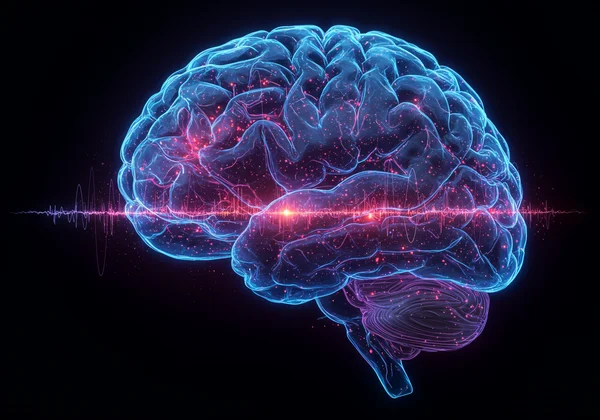Rejection Sensitive Dysphoria & ADHD: Take Our Free Neurodivergent Test
September 29, 2025 | By Morgan Hayes
Have you ever felt a wave of intense emotional pain from a seemingly minor comment or perceived rejection? Many people dismiss this as being "too sensitive," but what if it's something more? You might be experiencing Rejection Sensitive Dysphoria (RSD), a profound emotional response common among neurodivergent individuals, especially those with ADHD. What are the signs of being neurodivergent? For many, an extreme sensitivity to rejection is a major clue. This guide explores RSD, its powerful connection to ADHD, and offers practical coping strategies. Your feelings are valid, and understanding them is the first step toward empowerment. To explore your unique profile, you can start your journey.
What is RSD? Defining Rejection Sensitive Dysphoria
Rejection Sensitive Dysphoria isn't just sadness over canceled plans; it’s an extreme, overwhelming emotional pain triggered by perceived rejection, criticism, or failure. The "dysphoria" part is key—it’s Greek for unbearable. This isn't a simple reaction but a sudden, consuming internal experience that feels uncontrollable. Those with RSD often live in fear of failure or rejection, leading to two common patterns. Some become people-pleasers, striving for perfection to avoid criticism. Others may stop trying altogether, avoiding situations where they might be judged because the emotional fallout feels too great.

What RSD Feels Like: Beyond "Overreacting"
Being told you are "overreacting" can be incredibly invalidating, especially when the storm inside feels so real. RSD is more than a simple feeling; it’s a full-body experience. It can manifest as a sudden plunge into despair, a flash of intense anger directed inward or outward, or a crushing wave of shame that makes you feel worthless.
This emotional response is often instantaneous, bypassing logical thought. One moment you're fine, and the next, a single word or look can send you into a spiral. It's an invisible wound that feels deeply personal and catastrophic, even if you can rationally understand that the trigger was small. Understanding these intense feelings is a crucial part of the journey toward self-awareness.
Is RSD a Diagnosis? Clearing the Misconceptions
It’s important to clarify that Rejection Sensitive Dysphoria is not an official diagnosis in the DSM-5. Instead, it’s a clinical term describing a common set of experiences, particularly in people with ADHD and other forms of neurodivergence. While you won't be formally diagnosed with RSD, recognizing it as a valid experience is a powerful tool for self-understanding. It names a confusing pattern of emotional responses, shifting the perspective from personal failure ("I'm too sensitive") to a trait linked to brain wiring ("This is how my brain processes rejection"). If this sounds familiar, a neurodivergent traits quiz can be an insightful next step.
The ADHD-RSD Connection: Why the Link is So Strong
The connection between ADHD and RSD is profoundly rooted in neurology. The ADHD nervous system often reacts more quickly and intensely to stimuli, including emotional ones. This isn't a choice but a fundamental difference in emotional processing. The link is so strong that some experts consider RSD one of the most impairing aspects of living with ADHD. Understanding this connection can be a life-changing moment of validation for those who have long wondered why they feel things so deeply.

The Neurological Roots of RSD in ADHD
The ADHD brain often has differences in neurotransmitter systems, particularly dopamine, which is crucial for regulating emotions and motivation. When someone with an ADHD brain perceives rejection, it can feel like a catastrophic withdrawal of approval, hitting the dopamine system much harder. This heightened response is part of the brain's core wiring. The "rejection" signal gets amplified, triggering a fight-or-flight response and a flood of emotion. It's a neurological reaction, not a character flaw, and understanding this is key to developing emotional regulation skills.
Emotional Dysregulation & Executive Function Challenges
Beyond brain chemistry, RSD is intertwined with two core ADHD challenges: emotional dysregulation and executive dysfunction. Emotional dysregulation is the difficulty managing the intensity and duration of emotions. When RSD is triggered, an ADHD brain struggles to apply the brakes, letting the feeling become all-consuming. Furthermore, the rumination cycle common with executive dysfunction plays a major role. After a perceived slight, the brain gets stuck replaying the event, deepening the pain. This inability to shift focus is a classic example of executive dysfunction worsening the RSD experience.
Coping with RSD: Practical Strategies for Daily Life
Living with Rejection Sensitive Dysphoria is challenging, but it doesn't have to control your life. Recognizing your triggers and developing a toolkit of strategies can empower you to manage these intense emotions with more confidence and self-compassion. The goal isn't to stop feeling but to navigate those feelings without letting them overwhelm you.

Mindfulness & Emotional Regulation Techniques
One of the most effective first steps is to learn to pause between the trigger and your reaction. Mindfulness practices can help create this crucial space. When you feel the familiar surge of RSD, try to "name it to tame it." Simply acknowledging to yourself, "This is RSD," can separate you from the emotion and reduce its power.
Deep, slow breathing can also calm your nervous system in the moment. Inhale for four counts, hold for four, and exhale for six. This simple act can ground you in the present and interrupt the emotional spiral. Over time, consistent self-compassion practices help build emotional resilience.
Communicating Your Needs & Setting Boundaries
Because RSD is rooted in perception, clear communication can prevent misunderstandings. Explain your experience to trusted loved ones, perhaps by saying, "I have a strong sensitivity to criticism. It helps if you share feedback gently." Setting boundaries is also a form of self-protection. This might mean limiting time with overly critical people or learning to say "no" to avoid stretching yourself too thin and inviting potential failure. Embracing healthy communication creates a safer, more understanding environment.
Seeking Professional Support: Therapy & Medication Options
While self-help strategies are powerful, professional support is sometimes necessary. Therapies like Cognitive Behavioral Therapy (CBT) and Dialectical Behavior Therapy (DBT) are effective for developing emotional regulation skills and challenging negative thought patterns. Medication may also be an option to discuss with a healthcare provider. Certain medications for ADHD or anxiety can lower the intensity of emotional responses, making therapeutic strategies easier to implement. Exploring these options is a sign of strength. The journey starts with a single step, and a free neurodivergent test is an excellent place to begin.
Embrace Your Journey of Self-Discovery
Understanding Rejection Sensitive Dysphoria can be a profoundly validating experience. Realizing that your intense emotional reactions are not a personal failing but a legitimate neurological trait connected to neurodivergence is a critical step toward self-acceptance. By recognizing RSD and its connection to ADHD, you can move from a place of shame to one of compassion, equipped with strategies to navigate your feelings with greater clarity.
You are not "too sensitive," and you are certainly not alone. Your feelings are real and valid. To continue learning about your unique neurological profile and discover other potential neurodivergent traits that shape your experience of the world, we invite you to take our free Neurodivergent Test today. Embrace the journey of self-discovery and find the community and understanding you deserve.

Frequently Asked Questions About Rejection Sensitive Dysphoria
Is Rejection Sensitive Dysphoria (RSD) a recognized mental health diagnosis?
No, RSD is not a formal diagnosis in the DSM-5. It is a widely recognized clinical concept used to describe severe emotional pain from perceived rejection, especially common in people with ADHD.
Can I experience RSD without having ADHD or autism?
While strongly associated with ADHD and autism, similar sensitivities can occur with social anxiety or trauma. However, if you strongly identify with RSD, it’s a valuable indicator to explore other neurodivergent traits with a neurodivergence test.
How is RSD different from general sensitivity or anxiety?
The key differences are intensity and speed. General sensitivity means feelings get hurt easily, and anxiety is often a persistent worry. RSD is an acute, overwhelming, and unbearable pain triggered suddenly by perceived rejection or criticism.
What are immediate steps to take during an RSD episode?
Focus on grounding yourself. Step away if possible. Name five things you can see, four you can touch, and three you can hear. Use deep breathing to calm your nervous system and remind yourself, "This feeling is intense, but it will pass."
When should I seek professional help for RSD?
If your reactions to perceived rejection significantly impact your relationships, work, or mental health, it's wise to seek professional support. A therapist can help you develop coping strategies and explore underlying conditions like ADHD that may be contributing.